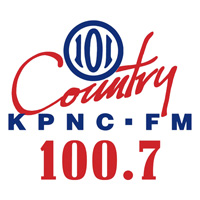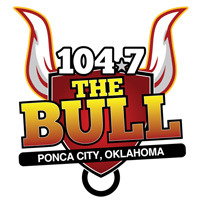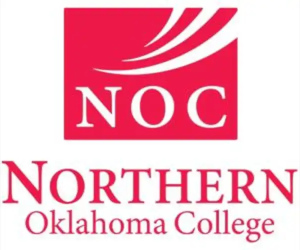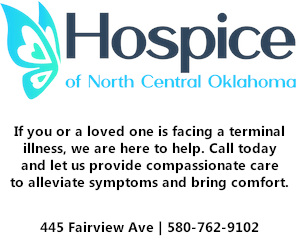The following is the Executive Department Amended Executive Memorandum 2020-01 filed by the office of Oklahoma Governor Kevin Stitt on March 25, 2020: Click here for a link to official document and click here for the federal list.
On March 25, 2020, the 164th case of a novel coronavirus (“COVID-19′), was documented in the state of Oklahoma. As noted in a previous Executive Order, the United States Centers for Disease Control and Prevention has identified the potential public health threat posed by COVID-19 as “high” both globally and in the United States. In addition, on March 14, 2020, the President of the United States declared a national health emergency in the United States as a result of the national spread of COVID-19.
On March 15, 2020, I issued Executive Order 2020-07 declaring an emergency caused by the impending threat of COVID-19 to the people of this State and the public’s peace, health, and safety. And, on March 24, 2020, I issued the Fourth Amended Executive Order 2020-07. Paragraph 20 of the Fourth Amended Executive Order 2020-07 ordered all businesses not identified as being within a critical infrastructure sector as defined by the U.S. Department of Homeland Security (USDHS) and located in a county experiencing community spread of COVID-19, as identified by OSDH on its website, to close.
In addition to those critical infrastructure sectors identified by USDHS, I hereby add the following:
HEALTHCARE / PUBLIC HEALTH
Health care providers (e.g. physicians, dentists, psychologists, mid-level practitioners, nurses and assistants, infection control and quality assurance personnel, pharmacists, physical and occupational therapists and assistants, social workers, speech pathologists and diagnostic and therapeutic technicians and technologists). Manufacturers, technicians, logistics and warehouse operators, and distributors of personal care/hygiene products. Behavioral health workers (including mental and substance use disorder) responsible for coordination, outreach, engagement, and treatment to individuals in need of mental health and/or substance use disorder services. Workers who provide support to vulnerable populations to ensure their health and well-being including family care providers. Medicinal marijuana dispensaries and all licensed medicinal marijuana companies that are in the supply chain for any medicinal marijuana dispensary Workers supporting veterinary hospitals and clinics.
- LAW ENFORCEMENT, PUBLIC SAFETY, FIRST RESPONDERS
- Including front line and management, personnel include emergency management, law enforcement, Emergency Management Systems, fire, and corrections, search and rescue, tactical teams including maritime, aviation, and canine units. Workers at Public Safety Answering Points. Fire mitigation activities. Private security, private fire departments, and private emergency medical services personnel. State and County workers responding to abuse and neglect of children, elders and dependent adults. Animal control officers.
FOOD AND AGRICULTURE
- Farm supply and hardware stores
- Groves, greenhouses, nurseries, and vineyards
- Agriculture, Forestry, Fishing and Hunting
Food manufacturing
- Beverage and tobacco product manufacturing
- Manufacturing of fiber and forestry products
- Veterinary services
- Certified farmers’ markets, farm and produce stands
Food cultivation, including farming, livestock and fishing Support of agricultural production including manufacturers, processors, sellers, transporters, and suppliers of livestock, poultry, feed, seed, water, fertilizer, herbicides, or insecticide and those that care for animals, crops, groves, greenhouses, nurseries, vineyards, forests, farms, and ranches
- Hardware stores, farm stores, and garden centers
ENERGY Electricity Industry
Acquisition (SCADA) systems, and utility data centers; Cybersecurity engineers, cybersecurity risk management. Power Generation, Transmission Safety and environmental personnel, and those who support and ensure the supply chain and supply chain management These categories of workers applies to all wind, solar, gas, hydroelectric and coal facilities. Petroleum Workers:
Midstream Companies Liquids or produced water/waste storage facilities Petroleum refinery fractionators, blenders Produced water waste facilities, including UIC wells and transportation Brine separation and processing facilities
Transportation maintenance and inspection workers Pipeline maintenance and construction workers who may be required to traverse state lines to maintain facilities that cross state lines Workers who maintain supply chain for these facilities Petroleum security operations employees and workers who support emergency response services Natural and Propane Gas Workers:
Other compression facilities Processing, refining, and transporting natural gas liquids, including propane gas, for use as end-use fuels or feedstocks for chemical manufacturing Propane gas storage, transmission, and distribution centers Compressed natural gas, liquefied natural gas, and propane gas retail and non-retail fuel stations, depots, and truck stops, that serve the public as well as private stations that support local and regional transportation companies such as transit authorities, refuse fleets, and freight haulers
- WATER AND WASTEWATER
- Drinking water and wastewater
- Drinking water plant superintendents, managers, operators and maintenance technicians
Drinking water distribution system operators and maintenance technicians
- Wastewater plant superintendents, managers, operators and maintenance technicians
Wastewater collection system operators and maintenance technicians
- Laboratory certified operators and employees of a government or privately owned laboratory that are accredited to analyze routine compliance drinking water or municipal wastewater samples
Rural water association staff and technical support staff
- Rural water districts, including all facilities
TRANSPORTATION AND LOGISTICS
Taxis, transportation services including Transportation Network ComTaxis, transportation services including Transportation Network Companies, and delivery services, including Delivery Network Companies. Wholesale trade
Transportation and warehousing Postal services and distribution centers
PUBLIC WORKS
- Solid waste & hazardous waste
- Utilities
- Underground damage prevention services
Operational staff for solid waste pick-up Operational staff at solid waste transfer and disposal facilities
Operational staff at hazardous waste treatment, storage, and disposal facilities, including underground injection control sites
- COMMUNICATIONS AND INFORMATION TECHNOLOGY
- Broadcasting
- Publishing industries
- Telecommunications
- Data processing, hosting, and related services
- Software publishers
- All other miscellaneous schools and instruction
- Computer systems design and related services
OTHER COMMUNITY-BASED GOVERNMENT OPERATIONS AND ESSENTIAL FUNCTIONS
Faith-based services that are provided through streaming or other technology.
- Critical government workers, as defined by the employer and consistent with
Continuity of Operations Plans and Continuity of Government plans. Workers supporting public and private childcare establishments, pre-K establishments, K-12 schools, career and technology centers, colleges, and universities for purposes of distance learning, provision of school meals, or care and supervision of minors to support essential workforce across all sectors.
County workers responsible for determining eligibility and safety net benefits.
- The Courts, consistent with guidance released from the Oklahoma Supreme
Court and Oklahoma Court of Criminal Appeals. Tag agencies Workers and instructors supporting academies and training facilities and courses for the purpose of graduating students and cadets that comprise the essential workforce for all identified critical sectors. Hotel Workers where hotels are used for COVID-19 mitigation and containment measures, including measures to protect homeless populations. Hotels Construction Workers, including residential and commercial, and workers who support the construction, operation, inspection, and maintenance of construction sites and construction projects (including housing construction and heavy and civil engineering construction) Businesses and workers that support the supply chain for commercial and/or residential construction and development Workers such as plumbers, electricians, exterminators, and other service providers who provide services that are necessary to maintaining the safety, sanitation, construction material sources, and essential operation of construction sites and construction projects (including those that support such projects to ensure the availability of needed facilities, transportation, energy and communications; and support to ensure the effective removal, storage, and disposal of solid waste and hazardous waste).
- Oklahoma One-Call or OKIE 811
Commercial Retail Stores, that supply essential sectors, including convenience stores, general merchandise stores, liquor, pet supply stores, auto supplies and repair, hardware and home improvement, and home appliance retailers,
- Motor vehicle and parts dealers
- Workers supporting the entertainment industries, studios, and other related establishments, provided they follow covid-19 public health guidance around social distancing.
- Workers critical to operating Rental Car companies that facilitate continuity of operations for essential workforces, and other essential travel. Workers that provide or determine eligibility for food, shelter, in-home supportive services, child welfare, adult protective services and social services, and other necessities of life for economically disadvantaged or otherwise needy individuals (including family members). Workers at animal care facilities that provide food, shelter, veterinary and/or routine care and other necessities of life for animals. Public and private golf courses, public parks, and workers needed to maintain normal operations. Workers involved with home repair and maintenance including roofing, lawn care, foundation repair, and similar businesses whose work is primarily performed out of doors. Executive, legislative, and other general government support Administration of human resources programs
Administration of environmental quality programs
- Administration of housing programs, urban planning, and community development Administration of economic programs
CRITICAL MANUFACTURING
- Paper manufacturing
- Printing and related support activities
- Plastics and rubber products manufacturing
- Mineral product manufacturing
- Primary metal manufacturing including equipment
FINANCIAL SERVICES
- Finance and Insurance
- Real estate and Leasing services
- Management of companies
Business associations
- Financial advisory
CHEMICAL
- Petroleum and coal products manufacturing
- Chemical manufacturing
- COMMERCIAL AND PROFESSIONAL SERVICES
- Professional (such as legal and accounting), scientific, and technical services
- Administrative and support services
- Waste management and remediation services
- Death care services
- Dry cleaning and laundry services
- Repair and maintenance
- DEFENSE INDUSTRIAL BASE
- Explosives manufacturing
- National security and international affairs
IN WITNESS WHEREOF, I have set my hand and caused the Great Seal of the State of Oklahoma to be affixed at Oklahoma City, this 25th day of March, 2020.
BY THE GOVERNOR OF THE STATE OF OKLAHOMA
J. KEVIN STITT
ATTEST:
1907























